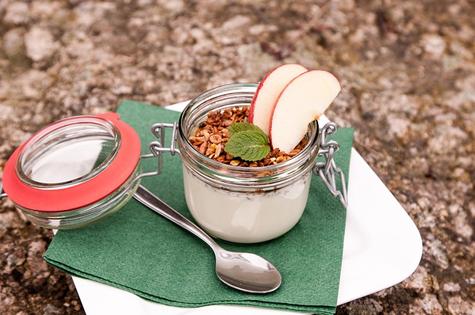PREBIOTICS: The New Buzz Word In Health:What are prebiotics and how can it benefit you?
Date: October 31 2016

Fun fact: did you know that the average human contains 10 times more bacterial cells than it does human cells? Despite this, many of us fail to look after this essential component of our digestive system.
Bacterial imbalance has been linked to many diseases including depression, anxiety, arthritis and irritable bowel syndrome, which is why experts have long stressed the importance of probiotics.
However, health experts are now recognising the significant benefits of its emerging counterpart - the prebiotic – in helping to boost digestive health by nourishing the good bacteria and suppressing the bad bacteria.
“While there has been plenty of hype about the benefits of probiotics over the years, few are aware of prebiotics which play an equally significant role in our gut health and should be a staple in our diets,” says Capilano Dietitian Kate Save.
“If you think of your digestive bacteria as a garden, then consider that prebiotics are the food that your garden needs to flourish,” Kate explains.
“Prebiotics are naturally occurring in many foods such as certain honeys, bananas and many vegetables including garlic, onions, leeks and Jerusalem artichokes - making it easy to incorporate them into your daily routine.”
According to Kate, prebiotics and probiotics work together in the gut to enhance our health and immunity whilst also communicating with the brain. This symbiotic relationship is the key for digestive health, and if either are out of balance, it can impact on our immunity, mental health, weight and the likelihood of developing a chronic disease.
“Studies have shown that not only is balanced digestive bacteria important for nutrient absorption, but for our immune, endocrine and nervous systems,” she said.
“So for optimal health and wellness and to rid the body of any potential ailments, it’s essential that people look after their gut bacteria by consuming adequate amounts of prebiotics and probiotics.”
Want to eat your way to optimal health? Kate shares her top tips for managing the balance of bacteria in your digestive system:
1. Eat inulin-rich foods: Inulin promotes healthy gut flora by serving as a natural prebiotic found in many common foods. Try adding foods high in inulin such as onion, asparagus, garlic and artichoke to your diet.
2. Go bananas: Not only are bananas nature’s energy source, but they are also rich in fermentable fibre – ensuring that you can enjoy a pre-packaged, natural prebiotic on-the-go. Pop them in your morning smoothie or enjoy them as a pre or post work-out snack with added digestive benefits.
3. Root for raw chicory: Raw chicory root is one of the best natural sources of prebiotics, due to the huge amount of fibre it contains. Look for breakfast cereals and breads that contain raw chicory, or visit your health food store where you can pick this up as a coffee substitute without the caffeine.
4. Sweeten your digestive health with honey: During the process of converting nectar into honey, bees add enzymes that create prebiotic sugars. However, not all honey is created equal. Swap your standard honey for one with proven prebiotic content – and add this golden goodness to your tea or toast of a morning as a natural way to nourish your digestive tract.
5. The good kind of ‘germ’: Wheat germ, the centre of a wheat kernel, is an excellent prebiotic due to its year-round seasonality. This cost-effective ingredient can be added to smoothies or stirred into oatmeal for a daily digestive boost at breakfast, or used as a substitute for flour when baking.
About Kate Save:
As one of the country’s most respected dietitians and exercise physiologists, Kate Save is truly passionate about helping to empower individuals across all walks of life make real change within their own lives to achieve optimal health and wellness.
With more than a decades experience in the health industry as an Accredited Practicing Dietitian and Accredited Exercise Physiologist with a double degree in Nutrition/Dietetics and Exercise Science as well as an Advanced Diploma in Diabetes Education, Capilano is thrilled to welcome Kate on board as their resident dietician and wellness expert.
About Capilano:
Capilano Honey was established in 1953 as a cooperative to support Australian beekeepers by Brisbane brothers Tim and Bert Smith. More than six decades later, Capilano continues to supply delicious, 100% pure Australian honey from more than 600 beekeeping families across Australia.
|
|||||||||||||||||||||||||||||||||||||||||||||||||||







 Agree (0)
Agree (0) Disagree (
Disagree (









__small.png)










